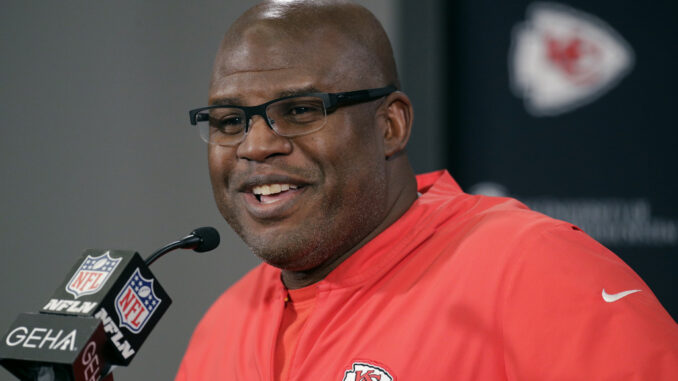
By Raymond Lucas Jr.
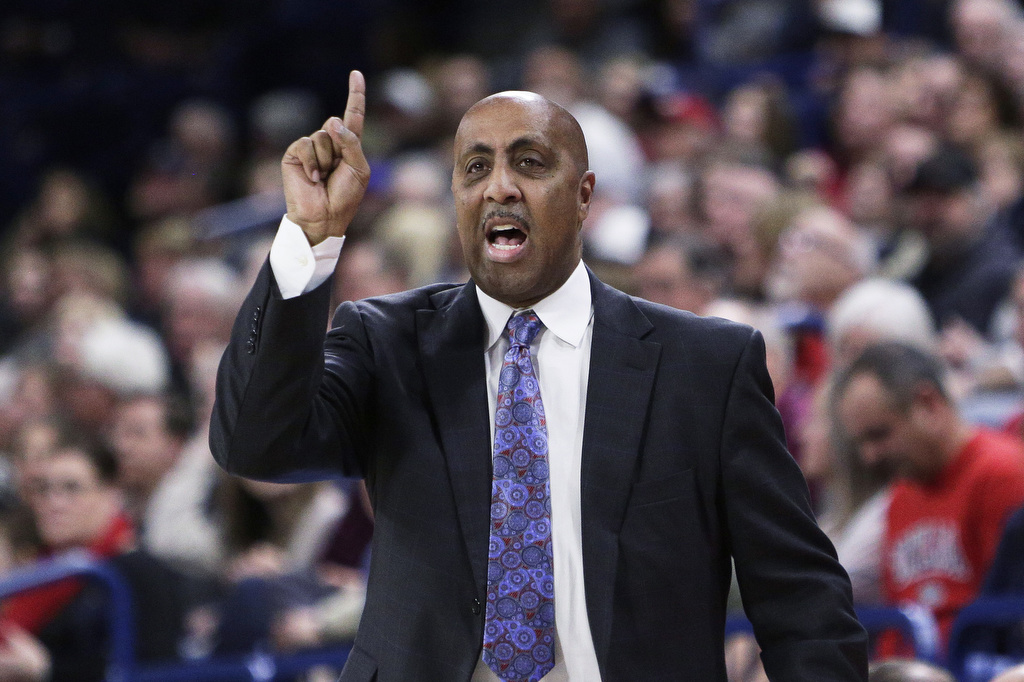
After Offensive Coordinator Eric Bieniemy and the Kansas City Chiefs left Miami as Super Bowl champions, many were surprised that for two straight years, he was not offered a head coaching position in the National Football League. Bieniemy, who is Black, joined a long list of other Black coaches who have been passed over.
The number of Black head coaches remains low at the collegiate and professional levels. In the NFL, only 3 out of 32 head coaches are Black, according to a recent count, and in the top Division I Football Subdivision (FBS), only 14 out of 130 are black, according to an analysis by the Associated Press.
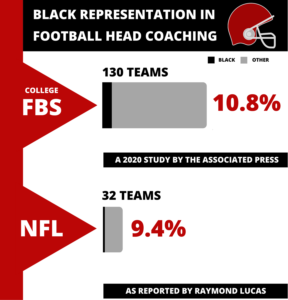
In contrast, Black players make up a majority in those leagues. The difference is in how the hiring is done.
“When you’re an athlete, the decision is made on the floor,” said Arizona State football coach Herm Edwards, who also played and coached in the NFL. “You let them compete and then you get to determine who the best players are.”
Coaching, on the other hand, is more about the job interview.
“It’s not so much what they’ve done. It’s the ability to go through the process of interviewing so you can find out about them and find out even though they might not look like you, you might have similar philosophies on how you do things,” Edwards said. “But until you approach that and allow those people to have a voice in that room of influence, you don’t know.”
After years of systemic racism against coaches, two groups have decided to fight back and create their own systems to create more visibility for Black coaches.
In July, college basketball coaches across the country announced The John McLendon Minority Initiative. McLendon, who passed in 1999, is a member of the Naismith Memorial Hall of Fame and the National Collegiate Basketball Hall of Fame and is known for both his coaching and civil rights activism.
The initiative will fund two to three positions per university for people of color to get into athletic administrative positions. The goal is to give programs more confidence in hiring more people of color.
Then this month, Maryland football coach Michael Locksley announced the formation of the National Coalition of Minority Football Coaches, a non-profit organization that will identify and groom both male and female coaches of color.
In the National Basketball Association, eight of the 30 teams are led by a black coach and in the Women’s National Basketball Association, two of the 12 teams have a black coach at the helm but neither of them were women, according to analysis of the teams’ coaching staffs.
In 2019, 87 of the programs at the Division I level in women’s college basketball had a black head coach, and 59 of those coaches were women, according to the National Collegiate Athletics Association. On the men’s side, 102 programs were led by a black male of 353 D1 programs.
“There are search firms that are predominantly white and the search firms subconsciously may hire people that they’re more comfortable with,” said Pepperdine Head Coach Lorenzo Romar. “A lot of times, to be honest, a token African-American coach gets included in the process and never really had a chance to get the job.”
While search firms may look for coaches that they are comfortable with, Howard University Head Coach Kenny Blakeney knows the importance of a coach whom a player can look up to.
“You know, I came from a household where I didn‘t have a dad,” Blakeney said. “I was raised by a single parent. I understand the value of having not only a male influence but a black male influence in a person’s life.”

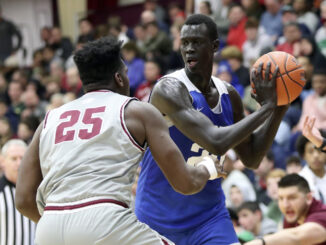
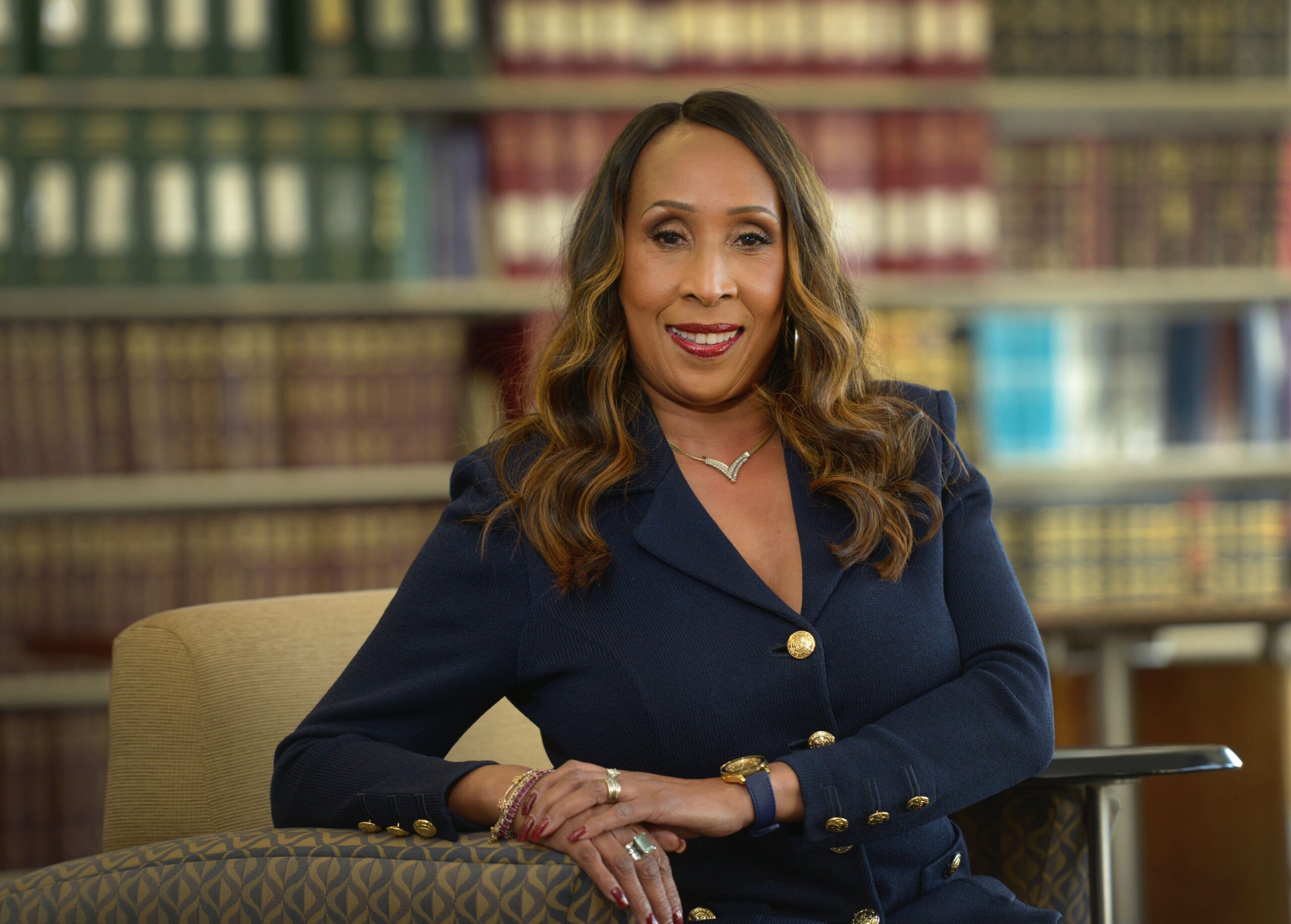
Be the first to comment